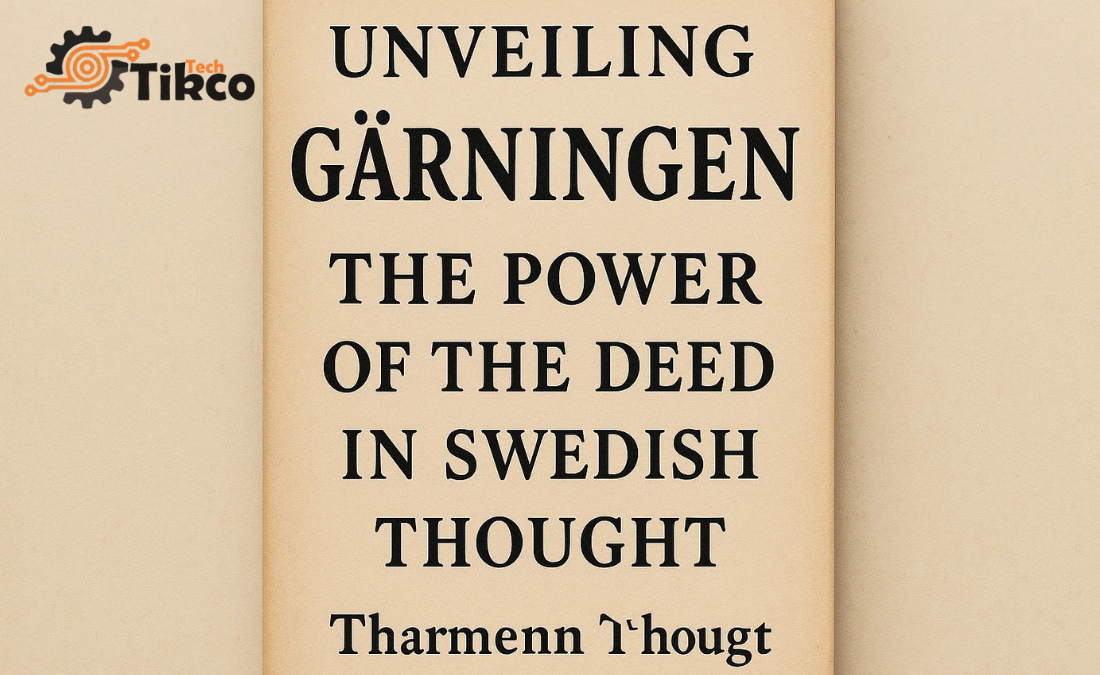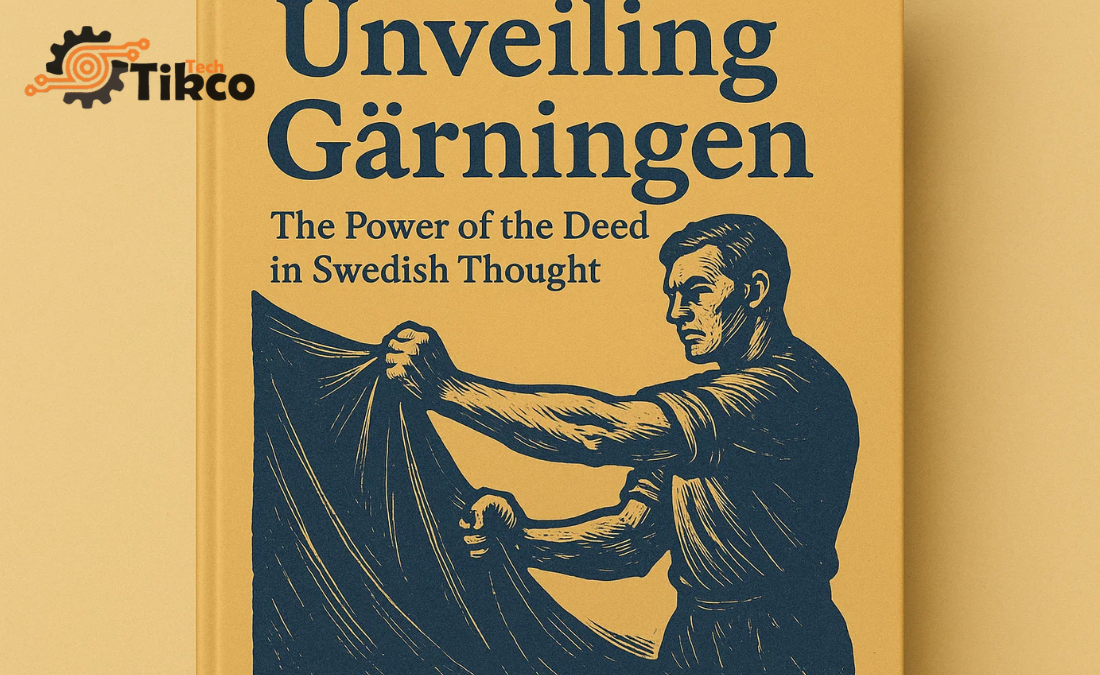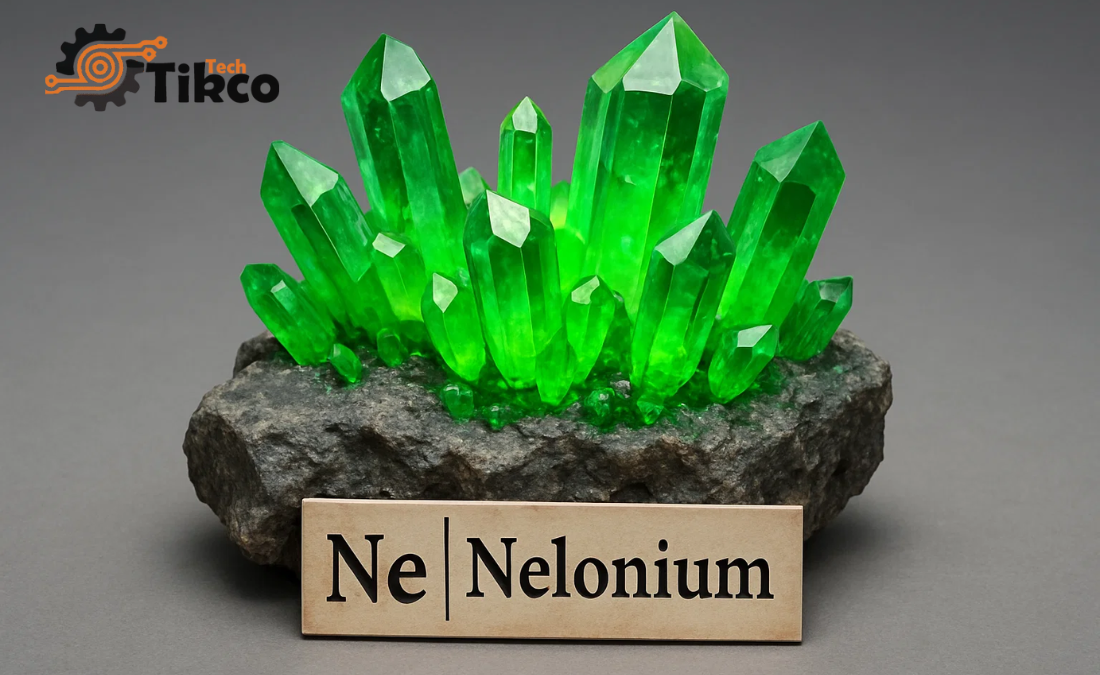In the rich tapestry of the Swedish language, certain words carry a weight that transcends their direct translation. They are cultural capsules, encapsulating a worldview, a set of values, and a way of being. One such word is “gärningen.” To simply translate it as “the deed” or “the act” is to capture the skeleton of its meaning but miss its soul. Gärningen is a concept that speaks to the profound Swedish appreciation for action, integrity, and the tangible evidence of character. It is the deed that defines, the action that validates, and the work that speaks louder than any promise. To understand gärningen is to take a significant step toward understanding the Swedish psyche, where humility, practicality, and a deep-seated belief in “doing” over “saying” are paramount.
The Linguistic Roots of Gärningen
To fully appreciate the depth of gärningen, we must first dissect its linguistic components. The word originates from the Old Norse “gerningr,” meaning “deed” or “action.” It is closely related to the verb “göra,” which means “to do” or “to make.” This etymological link is crucial. Gärningen is not an abstract concept; it is intrinsically tied to the act of doing. It is the noun born from the verb, the concrete result of effort and intention.
Unlike the English word “action,” which can feel broad and sometimes impersonal, gärningen often carries a moral or ethical dimension. It can refer to a heroic feat (en hjältes gärning), a good deed (en god gärning), or even a criminal act (en brottslig gärning). In each case, the word points to something consequential—an action that has weight and consequence, shaping the narrative of the individual who performed it. This linguistic foundation sets the stage for why gärningen holds such a powerful place in Swedish culture, representing a bridge between intention and tangible reality.
Gärningen as an Antidote to Empty Words
In a world often saturated with rhetoric, promises, and self-promotion, the concept of gärningen stands as a quiet but firm rebuttal. Swedish culture, influenced by Lutheran values and a historical context of making a living from a demanding natural environment, has long valued practicality and skepticism towards boastfulness. This is where gärningen becomes a core cultural tenet.
The famous Swedish proverb, “Gärningen är qvinnans, mannens och ynglingens tal” (The deed is the speech of the woman, the man, and the youth), perfectly encapsulates this idea. It suggests that what one does is the most authentic and powerful form of expression. Empty words are seen as untrustworthy; true character is revealed through action. This aligns closely with the modern Swedish principle of “lagom” (just the right amount) and the Law of Jante, which discourages boasting and standing out. In this framework, letting your gärningar—your accomplishments, your kindness, your hard work—speak for you is the ultimate sign of integrity. It is a form of communication that is considered more honest, more reliable, and ultimately, more respectable than any eloquent speech.

The Manifestation of Gärningen in Modern Swedish Society
The principle of gärningen is not a relic of the past; it is woven into the very fabric of contemporary Swedish life. We can observe its influence in several key areas:
- The Work Ethic: In Swedish business culture, there is a strong emphasis on delivering results rather than talking about potential. A manager is more likely to be respected for their competence and the success of their projects (deras gärningar) than for their charismatic motivational speeches. This creates an environment where meritocracy, based on tangible outcomes, is highly valued.
- Social Welfare and Civic Duty: The extensive Swedish welfare state is, in many ways, a collective gärning. It is built on the premise of taking action to create a good society for all. Paying taxes is not just a legal obligation but a civic gärning—a concrete contribution to the common good. This reflects a societal belief that problems are solved through collective action and practical solutions, not just through ideological debate.
- Environmental Stewardship: Sweden’s global reputation for sustainability is a powerful example of gärningen on a national scale. The country’s advancements in recycling, renewable energy, and conservation are not merely stated goals; they are realized gärningar. This commitment to “walking the walk” in environmental policy resonates deeply with the cultural preference for actionable solutions over mere declarations of intent.
- Interpersonal Relationships: On a personal level, the concept fosters reliability. A friend who shows up to help you move, a neighbour who shovels your driveway without being asked—these are gärningar. They are the currency of trust in relationships, valued far more than grand, unfulfilled promises.
The Duality of Gärningen: Good Deeds and Criminal Acts
As mentioned, gärningen is a morally neutral container; its value is determined by the action it describes. This duality is essential to grasp. The same word that elevates a hero can condemn a criminal. In a legal context, “brottslig gärning” (criminal act) is a standard term. The focus is squarely on the objective action itself, the gärning, which is then judged against the law.
This duality reinforces the word’s power. It does not romanticize action; it simply acknowledges its fundamental importance. A person is defined by the sum of their gärningar, for better or worse. This creates a sense of personal responsibility. Every action, every deed, contributes to the narrative of one’s life. It encourages mindfulness and intentionality, as each gärning carries the potential to build up or tear down one’s character and standing in the eyes of the community.
Conclusion: The Enduring Legacy of the Deed
Gärningen is far more than a word; it is a philosophical anchor in Swedish culture. It champions substance over style, results over rhetoric, and action over aspiration. It is a quiet demand for authenticity, urging individuals and society as a whole to be judged by what they tangibly create and contribute. In an age of digital noise and performative communication, the timeless wisdom of gärningen feels more relevant than ever. It reminds us that while words can inspire, it is ultimately our deeds—our gärningar—that build the world, define our character, and leave a lasting legacy. To embrace the spirit of gärningen is to commit to a life of purposeful action, where the truest measure of a person is found not in what they say they will do, but in what they have done.




